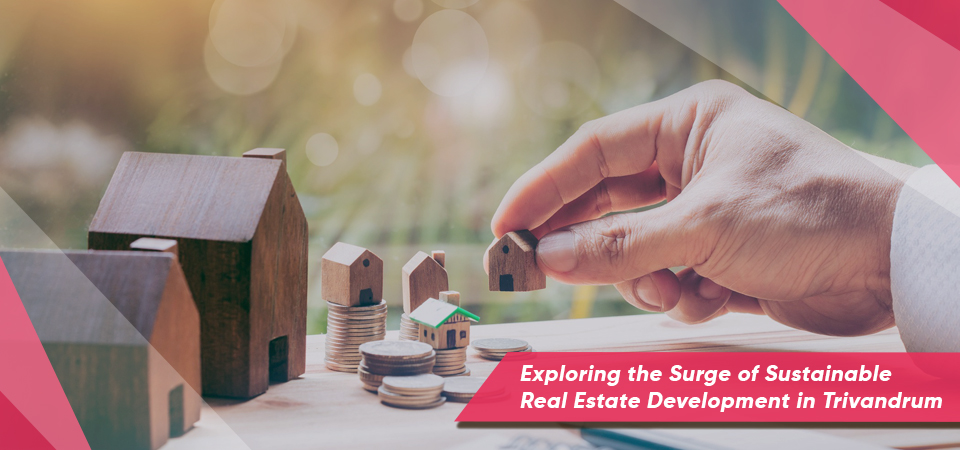
Blog Detail
Exploring the Surge of Sustainable Real Estate Development in Trivandrum
Posted onMar 20, 2024
Nestled in the southern part of India, Trivandrum, officially known as Thiruvananthapuram, stands as a testament to cultural richness and geographical diversity. In recent years, this historic city has witnessed a remarkable shift towards sustainable real estate development. This movement not only aligns with global sustainability goals but also caters to the growing demand for eco-friendly living spaces among the city's residents.
The Foundation of Sustainable Real Estate in Trivandrum
The real estate sector in Trivandrum has a deep-rooted history of adapting to changes and embracing innovation. The surge in sustainable real estate is a response to the increasing awareness of environmental issues and the demand for healthier living environments. Supported by favorable government policies and incentives, developers are increasingly integrating green building practices into their projects.
Key Features of Sustainable Real Estate in Trivandrum
Sustainable real estate in Trivandrum is characterized by the use of eco-friendly materials, energy-efficient designs, and the incorporation of renewable energy sources. These practices not only reduce the carbon footprint of buildings but also ensure significant savings in energy and water consumption over time. Advanced water conservation techniques and waste management strategies, such as those highlighted in Waste Management Solutions for Apartments in Trivandrum, further emphasize the commitment to sustainability.
Benefits of Investing in Sustainable Real Estate in Trivandrum
The benefits of investing in sustainable real estate are manifold. Environmentally, these practices contribute to the conservation of natural resources and a reduction in greenhouse gas emissions. Economically, property owners enjoy lower utility bills and higher property values, a reflection of the growing real estate market trends in Trivandrum. Socially, sustainable buildings offer healthier and more comfortable living spaces, contributing to the overall well-being of the community.
Challenges and Solutions
Despite the clear advantages, the path to sustainable development is fraught with challenges. High initial costs and a lack of awareness among consumers are significant hurdles. However, innovative financing models and educational campaigns are being employed to overcome these obstacles, paving the way for more sustainable construction practices.
Spotlight on Sustainable Real Estate Projects in Trivandrum
Trivandrum is home to several pioneering sustainable real estate projects that serve as benchmarks for future developments. These projects showcase the successful implementation of green technologies and sustainable design principles, setting a standard for others to follow.
The Future of Sustainable Real Estate in Trivandrum
The future of sustainable real estate in Trivandrum looks promising, driven by technological advancements and a strong community ethos. As more people recognize the Benefits of Living in Lifestyle Apartments in Trivandrum, the demand for eco-friendly homes is set to rise, encouraging developers to continue innovating and adopting sustainable practices.
Conclusion
The surge in sustainable real estate development in Trivandrum marks a significant step towards a greener, more sustainable future. By choosing to invest in eco-friendly properties, residents and developers alike contribute to the well-being of the planet and future generations. It is a collective journey towards creating living spaces that are not only environmentally responsible but also economically viable and socially beneficial.
As we move forward, let us embrace the principles of sustainability in our homes, communities, and lifestyles. Together, we can make Trivandrum a model city for sustainable living, setting an example for the rest of the world to follow.
FAQs
Q: What defines sustainable real estate in Trivandrum?
A: Sustainable real estate in Trivandrum is characterized by eco-friendly construction materials, energy-efficient designs, renewable energy use, water conservation, and effective waste management strategies.
Q: Can sustainable real estate improve my quality of life in Trivandrum?
A: Yes, it offers a healthier living environment through improved air quality, natural lighting, and better waste management.
Q: What are the long-term benefits of sustainable buildings in Trivandrum?
A: Long-term benefits include significant reductions in utility costs, enhanced living comfort, and a positive impact on the environment and local community's health.